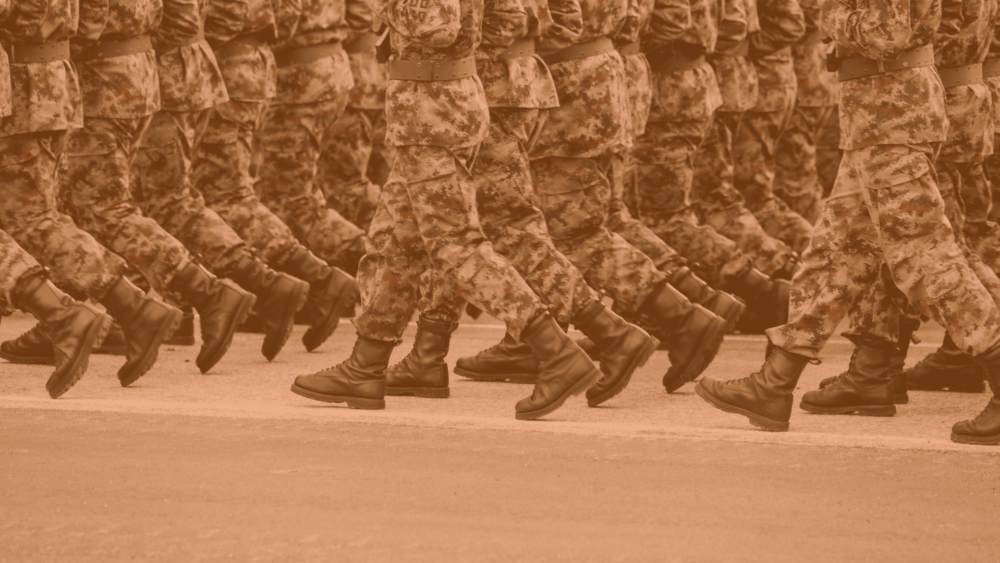Eighty years after WWII, Europe risks abandoning the peace it once vowed to protect
May 9 is Europe Day, also known as VE Day, marking the date in 1945 when World War II ended in Europe. It symbolised hope for peace and progress after a period of unparalleled devastation. But exactly 80 years later, people across the world are deeply alarmed by the renewed spread of war ideologies and the immense global resources being funnelled into weapons.
In Europe especially, there is rising concern that the EU and its member governments are abandoning peace in favour of militarisation – undermining the European ideals of democracy, international cooperation, freedom, and human dignity.
On May 9, 2025, we remember and honour the more than 60 million people who died in World War II. Of that number, 27 million were citizens of the federated Soviet Socialist Republics, which also accounted for an estimated 64% of total military deaths among the Allied forces. This compares to 24% for China, and 12% for other Allied countries, including Poland, Yugoslavia, Albania, the United States, France, and the United Kingdom.
The experience of such massive loss, alongside the revelation of the horrors of the concentration camps and the Holocaust, left the people of Europe determined to ensure this tragedy would never be repeated. If the war was to have any lasting meaning, the post-war reconstruction of Europe had to prioritise peace and human rights for all.
Some progress followed. Europe began to develop in a more cooperative, peaceful political environment. On May 9, 1950 – five years after the war – French foreign minister Robert Schuman presented a proposal that laid the groundwork for what would become the European Union. Recognising the decline of Europe’s imperial powers – Germany, France, Italy, and Britain – and the rise of two superpowers, the United States and the Soviet Union, Schuman called for a new form of unity. His declaration aimed to “lead to the realisation of the first concrete foundation of a European federation indispensable to the preservation of peace.”
Yet in 2025, that post-war vision seems to be fading fast. Talk of peace has largely disappeared from the public conversation, replaced by rhetoric focused on rearmament and military buildup. The European Union is now assembling and activating “battlegroups” for war readiness, framing them as a show of strength aimed not only at Eastern neighbours on the Euro-Asian continent but also toward the Global South. As expressed in the now-infamous words of Josep Borrell, the EU’s foreign policy chief, this effort is part of conserving the “European garden” from being overrun by the “encroaching jungle.”
Rearming Europe: By the numbers
In 2024, military spending reached $2.7 trillion dollars worldwide. The 32 countries of NATO spent 55% of this amount, and the total figure is now $1.5 trillion. European countries are leading this surge in spending with all countries, except Malta, having increased military spend in 2024.
In Central and Western Europe, military spending rose by 14%, reaching $472 billion, representing a 59% increase from 2015 to 2024. Germany alone spent $88.5 billion in 2024, a 28% increase from the previous year and an 89% increase since 2015, making it the fourth largest military spender in the world. Poland also saw a sharp increase of 31%, bringing its total to $38 billion. On Europe’s periphery, the UK spent $81.8 billion.
Germany’s growing military role doesn’t end with its own budget. It is now the second-largest supplier of war equipment to Israel after the US. Israel’s military expenditure grew by 65% in 2024, reaching $46.5 billion.
Public resistance grows
Across Europe, more people are rejecting this direction. They argue that public funds should be used for healthcare, housing, climate resilience, and vital infrastructure – not for expanding military power. That’s why on May 9, 2025, from Iceland to Russia, people will take to the streets in towns and cities to demand a peaceful future for Europe. In unified voice, they will proclaim: “We are convinced that together we can organise peaceful coexistence on our continent.”
Peace activists and elected representatives in several countries will highlight their governments’ failure to act meaningfully to prevent war and genocide or to advance peace. In many languages, they will expose how militarisation increases the likelihood of future wars, deepens national debts, fuels austerity, and leads to more borders and division. They will also show how it worsens racism and xenophobia, and accelerates the climate crisis and environmental destruction.
Members of DiEM25 stand behind this continent-wide people’s initiative for peace. We reaffirm the call made in our DiEM25 Manifesto for:
“A peaceful Europe de-escalating tensions in its Eastern, Mediterranean and Aegean regions, ending its colonial projects in the Middle East, Africa and elsewhere, as well as acting as a bulwark against the sirens of militarism and expansionism everywhere.”
Do you want to be informed of DiEM25's actions? Sign up here















